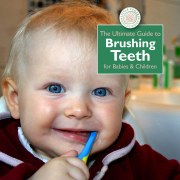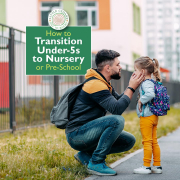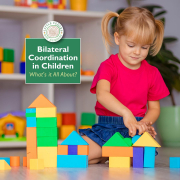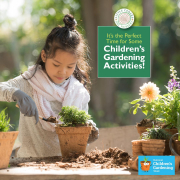The Benefits of Sensory Play for Under-Fives
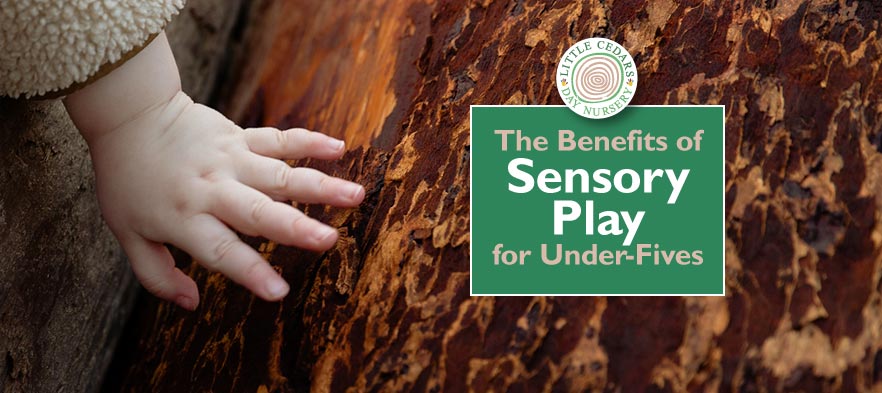
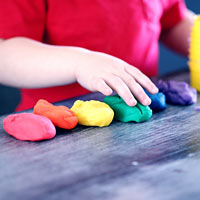 Sensory play is incredibly important for under-fives. Babies and young children benefit enormously when their play activities stimulate the senses and in this article we’ll explore those benefits in some detail.
Sensory play is incredibly important for under-fives. Babies and young children benefit enormously when their play activities stimulate the senses and in this article we’ll explore those benefits in some detail.
The Senses
For the purpose of this blog post, ‘senses’ will mean the famous five (touch, taste, smell, sight and hearing) plus a couple of others that are often overlooked; balance and body awareness (also known as ‘proprioception’). As with the core 5 senses, the two additions are critically important as part of the learning and development journey for little ones.
What is Sensory Play?
Sensory Play is any kind of play activity that involves stimulation of any of the senses outlined above. For example:
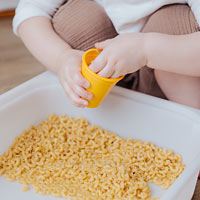 activities that involve touch, where babies and children can acquaint themselves with the feelings of temperature, softness, hardness, pressure, vibration, roughness, smoothness etc.;
activities that involve touch, where babies and children can acquaint themselves with the feelings of temperature, softness, hardness, pressure, vibration, roughness, smoothness etc.;- activities involving food, which can involve tasting to see whether the food is sweet, sour, savoury and so on;
- play activities involving smell, which involve items that have a scent, whether natural like flower petals, fruit, organic materials and suchlike or man-made scents like diluted bubble bath and so on;
- visual (sight) activities, where children explore colours, tones, visual textures, contrast, brightness and images, learning how to associate them with the real world;
- hearing activities, where children experience the different types of sounds that surround them;
- play activities that help them to learn to balance i.e. to counteract the effects of gravity;
- activities that help children to develop a sense of spacial awareness i.e. of where their bodies are within their surroundings and in relation to objects and other people around them.
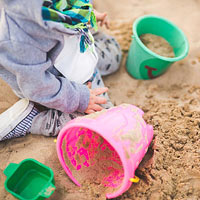 The Benefits of Sensory Play
The Benefits of Sensory Play
Sensory play allows children to learn more about the world around them, and all the things within it. As they learn, new pathways are formed within the brain and this helps to cement permanent associations between a particular sense and a particular situation, physical thing, or scenario. When this is achieved, the child will instantly and naturally recognise multiple layers of senses as they happen again in the future. That’s an important life skill and something that adults take for granted, but benefit from enormously.
Additional benefits of sensory play for children include:
- Recognition of objects, environments, situations and sensory attributes through sight, hearing, taste, touch or smell;
- Recognition of their own physical self within the space and other things around them;
- The development and improvement of motor functions including gross and fine motor skills;
- Balance, safe movement and measured navigation within an environment or situation;
- Improvement of language skills as children are able to better describe what they’ve interacted with through their senses;
- Improved problem-solving skills as children are better equipped to think critically and even scientifically;
- Improved attention. For example, using the new-found sensory abilities they will learn to cognitively separate one sensory stimulation from another. Using this skill, children can overcome some distractions, for example ‘filtering out’ background noise, to allow them to focus on something more important;
- Learning to remove themselves from situations where there may be a ‘sensory overload’. This can really help with their mental wellbeing. For example, having learnt more about their individual senses, children will better understand why a particular situation may be too chaotic for their own good. Understanding why they’re feeling how they feel in frenetic situations can lead to better decision-making and wiser choices. This includes whether to take part in the situation or to move to a more peaceful environment;
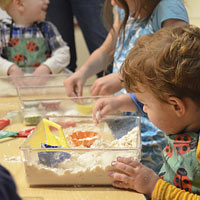 Learning skills around mindfulness: sensory play is, in itself, a therapeutic way to calm any anxiety or frustration and help children to re-centre themselves and become immersed ‘in the moment’;
Learning skills around mindfulness: sensory play is, in itself, a therapeutic way to calm any anxiety or frustration and help children to re-centre themselves and become immersed ‘in the moment’;- Learning more about textures and how they can be replicated can also help very young children learn to ‘trust’ new foods that they may not have previously wanted to try. Spaghetti and soup would be great examples because sensory play can give them a positive association with such textures;
- Sensory play takes children’s learning and development to a new level, giving them new ways to be creative and to explore and understand the world around them;
- It also represents a great opportunity for group play and, in so doing, helps to improve children’s social skills;
- With new pathways being formed in the brain, sensory play helps children to cope with more complex tasks and also enhances memory skills;
- Sensory play can also help children with autism, particularly those with Sensory Processing Disorder (‘SPD’). The topic deserves its own stand-alone article, so we may follow up with a separate post on the topic in due course.
Conclusion
We can see that there are many benefits of sensory play for babies and young children. Indeed, it’s something that should be encouraged at home as well as at nursery or pre-school. In view of this, we follow this post with a new post featuring 11 sensory-based activities that parents and carers can undertake with babies and children at home.
Sensory Play at Little Cedars Nursery, Streatham
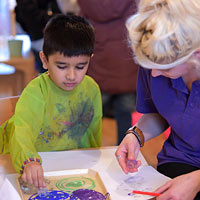 Babies and children are, of course, given a huge variety of sensory-based play opportunities at Little Cedars Nursery in Streatham in south west London. There are multi-sensory areas and equipment throughout the setting. For example, there is a separate area with multi-sensory equipment for babies. Children aged from 12 months to 2 years are also introduced to sensory activities, which include listening to music. Our toddlers aged between 2 and 3 also have a sensory zone of their own to explore and to learn new skills from. Our indoor and outdoor areas also have lots of sensory-based activities for the children to enjoy and learn from.
Babies and children are, of course, given a huge variety of sensory-based play opportunities at Little Cedars Nursery in Streatham in south west London. There are multi-sensory areas and equipment throughout the setting. For example, there is a separate area with multi-sensory equipment for babies. Children aged from 12 months to 2 years are also introduced to sensory activities, which include listening to music. Our toddlers aged between 2 and 3 also have a sensory zone of their own to explore and to learn new skills from. Our indoor and outdoor areas also have lots of sensory-based activities for the children to enjoy and learn from.
If you are interested in a childcare place for your baby, toddler or young child under five, we currently have a few places available in our Streatham Nursery, so do get in touch. The nursery is near to Streatham Hill, Streatham Common, Streatham Park, Upper Tooting, Tooting Bec, Tooting Common, Furzedown & Balham. Click one of the buttons below to get started …

